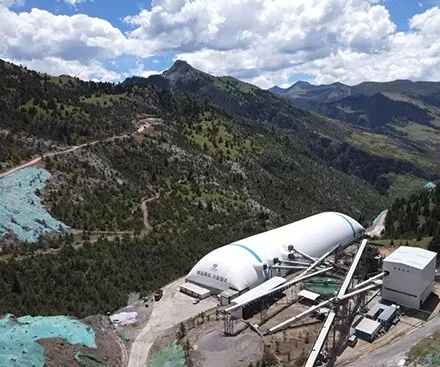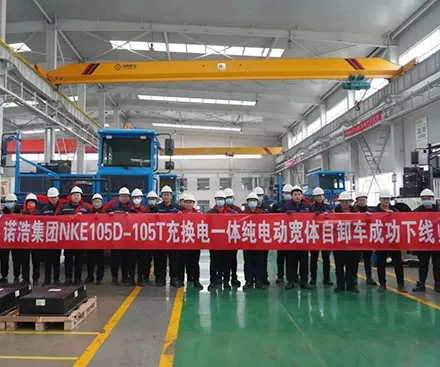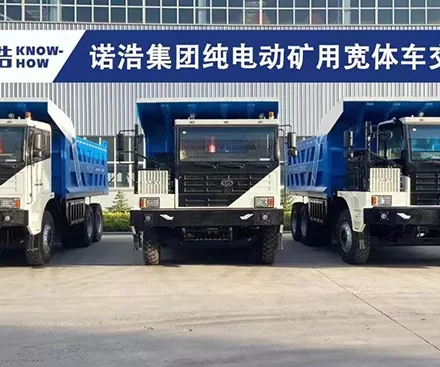Selecting the right crawler hydraulic excavator is a critical decision that can significantly impact the success and efficiency of construction projects. These powerful machines are widely used in various industries, such as construction, mining, forestry, and demolition, for tasks like digging, lifting, and moving heavy materials. Before making a purchase, several essential factors should be carefully considered to ensure that the selected excavator meets the project requirements and delivers optimal performance. In this article, we will explore five key factors to consider before selecting a crawler hydraulic excavator.
The size and capacity of the excavator are crucial factors that directly influence its productivity and suitability for specific tasks. Electric crawler hydraulic excavators are available in a range of sizes, from compact models with lower operating weights to larger machines with higher lifting capacities. Before selecting an excavator, it's essential to assess the scale of the project and the type of tasks it will be performing.
For smaller projects or tasks in confined spaces, a compact or mini excavator might be the most suitable option, offering better maneuverability and accessibility. On the other hand, larger projects or heavy-duty tasks may require a full-size excavator with a higher lifting capacity and reach. Choosing the right size and capacity ensures that the excavator can handle the workload efficiently, minimizing downtime and maximizing productivity.
Digging depth and reach are critical considerations, especially when the excavator will be used for excavation or trenching tasks. The digging depth refers to how deep the excavator can dig into the ground, while the reach indicates how far it can extend horizontally from the machine's centerline. Both parameters should align with the project's requirements and the intended scope of work.
For deep excavation projects, an excavator with a greater digging depth is necessary to avoid frequent repositioning. Similarly, a longer reach allows the excavator to cover a larger area without constantly moving the machine. Assessing the digging depth and reach capabilities helps optimize the excavation process and enhances overall project efficiency.
The operating weight of the excavator is crucial for ensuring its stability during operation. The weight distribution and balance play a significant role in preventing tipping and maintaining safe working conditions. Stability becomes even more critical when working on uneven or sloped terrain.
Before selecting an excavator, evaluate its operating weight in relation to the tasks it will be performing and the ground conditions it will encounter. Ensure that the machine's counterweight and track design contribute to its stability, allowing it to handle heavy loads and maintain equilibrium even when operating at maximum capacity.
The hydraulic system is the heart of a crawler hydraulic excavator, powering its various functions, such as digging, lifting, and rotating. A robust and efficient hydraulic system is essential for smooth and precise operation. Consider the excavator's hydraulic pump capacity, as it determines the speed and force with which the machine performs its tasks.
Additionally, assess the availability and compatibility of attachments that can be fitted to the excavator. A wide range of attachments, such as buckets, hydraulic breakers, grapples, and augers, increases the excavator's versatility and allows it to perform multiple tasks without the need for multiple machines. Ensure that the hydraulic system can handle the desired attachments and that the excavator's quick coupler mechanism enables swift and secure attachment changes.
Fuel efficiency is a critical factor in today's environmentally conscious world, as it impacts operational costs and reduces the machine's environmental footprint. Modern crawler hydraulic excavators often come with advanced engine technologies and hydraulic systems that enhance fuel efficiency.
Compare the fuel consumption rates of different models and choose one that strikes a balance between power and economy, ensuring optimal performance without unnecessary fuel wastage. Additionally, consider excavators that meet or exceed emission standards to reduce their impact on the environment.
Selecting a crawler hydraulic excavator involves careful consideration of various factors, including size and capacity, digging depth and reach, operating weight and stability, hydraulic system and attachments, and operator comfort and safety. By thoroughly evaluating these factors in the context of the project's requirements and working conditions, one can make an informed decision and choose an excavator that delivers optimal performance, enhances productivity, and ensures a safe and efficient construction process.
Shanxi Province in 1998, KNOW-HOW Group is a leading manufacturer and service provider of mining equipment in China.
It has built intensive, intelligent and efficient mining equipment by deep integration of mining equipment development, energy supply services, and maintenance and operations of equipment. It promotes the development of clean energy in mining areas and provides one-stop services for mining enterprises to make contributions to ecological civilization and green mines
If you want to read more information about Crawler Hydraulic Excavator, just visit --> https://www.know-howequipment.com/contacts/contact-us/

Jul. 23, 2022
View More
Jun. 15, 2022
View More
Jun. 01, 2022
View More